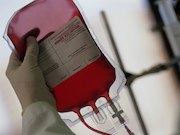No data to suggest that nonvoluntary nature of donations compromises safety of blood products
WEDNESDAY, Sept. 27, 2017 (HealthDay News) — There is no evidence to support excluding patients with hereditary hemochromatosis (HH) from serving as blood donors, according to a review published online Sept. 13 in Hepatology.
Noting that patients with HH undergo frequent therapeutic phlebotomy to reduce the iron burden and that many blood centers around the world do not accept HH donors, Adam C. Winters, M.D., from the Icahn School of Medicine at Mount Sinai in New York City, and colleagues conducted a systematic review to examine the existing biologic and clinical data concerning infectious risk and summarize clinical experience from centers that allow HH donors.
The researchers found that there was no compelling evidence that blood from HH patients confers additional infectious risk. No data were found to suggest that the nonvoluntary nature of the donations compromises the safety of these products. No evidence of transfusion-transmissible diseases arising from these donations was found in published data from a center that accepted HH patients as blood donors.
“Given the existing evidence and perceived benefit, we conclude that there is no reason to exclude blood donations from patients with HH,” the authors write. “We encourage the adoption of universal acceptance of blood donated from individuals having HH.”
Copyright © 2017 HealthDay. All rights reserved.








